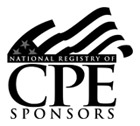
View Details/Register
View Details/Register
View Details/Register
View Details/Register
View Details/Register
View Details/Register
View Details/Register
View Details/Register
View Details/Register
View Details/Register



CPA - medium firm
CPA - large firm
Estate Planning Techniques is a comprehensive course designed to provide students with a thorough understanding of the various strategies and tools involved in effective estate planning. Estate planning is a crucial aspect of financial planning, ensuring the orderly distribution of assets and the fulfillment of individuals' wishes after their passing. This course aims to equip students with the knowledge and skills necessary to navigate the complex landscape of estate planning and make informed decisions for themselves and their clients.
The course begins by introducing the fundamental principles and objectives of estate planning, emphasizing the importance of a well-structured estate plan. Students will explore the legal and financial implications of estate planning, including estate and gift taxes, probate processes, and asset protection.
Throughout the course, students will delve into a wide range of estate planning techniques and strategies. They will examine the benefits and limitations of tools such as wills, trusts, powers of attorney, living wills, and healthcare directives. Students will gain practical insights into the drafting and administration of these documents, understanding their role in preserving and transferring wealth while minimizing potential conflicts and tax liabilities.
Topics covered include the use of revocable and irrevocable trusts, charitable planning, business succession planning, gifting strategies, and the role of life insurance in estate planning. Students will explore the intricacies of each technique, considering their suitability for different client profiles and objectives. They will also analyze case studies to understand the practical applications and potential challenges associated with each approach.
Moreover, this course will address key considerations in international and cross-border estate planning, including jurisdictional differences, tax treaties, and planning for non-resident beneficiaries. Students will develop an understanding of the unique challenges and opportunities that arise when dealing with global estates.
Ethical considerations and professional responsibilities in estate planning will also be explored. Students will examine the importance of maintaining client confidentiality, avoiding conflicts of interest, and adhering to legal and ethical standards in the practice of estate planning.
By the end of this course, students will have a comprehensive understanding of estate planning techniques, enabling them to develop and implement effective estate plans for themselves or their clients. Whether students are individuals seeking personal estate planning guidance or professionals in fields such as law, finance, or accounting, this course equips them with the necessary knowledge and skills to navigate the intricacies of estate planning, ensuring the preservation and smooth transfer of wealth while honoring the intentions and desires of the individual.
Learning Objectives:
- Identify the fundamental principles and objectives of estate planning, including the legal and financial implications involved, to develop a solid foundation in estate planning knowledge
- Evaluate and compare various estate planning techniques and tools, such as wills, trusts, powers of attorney, and healthcare directives, to determine their suitability for different client profiles and objectives
- Determine the benefits and limitations of specific estate planning strategies, such as revocable and irrevocable trusts, charitable planning, business succession planning, and gifting strategies, to make informed recommendations based on individual circumstances
- Outline the complexities of international and cross-border estate planning, including jurisdictional differences, tax treaties, and planning for non-resident beneficiaries, to effectively address global estate planning challenges and opportunities
- Recognize and apply ethical considerations and professional responsibilities in estate planning, ensuring client confidentiality, avoiding conflicts of interest, and adhering to legal and ethical standards in the practice of estate planning

Alan Gassman
Gassman, Crotty & Denicolo, P.A.
President
[email protected]
(727) 442-1200
Alan S. Gassman, J.D., LL.M., is a board-certified estate planning and trust lawyer who practices in Clearwater, Florida. He has an LL.M. in taxation from the University of Florida and practices in trust and estate planning, tax, wealth preservation, and the representation of physicians and medical practices.
Mr. Gassman speaks at many tax conferences, national programs, and webinar platforms, including Bloomberg BNA Tax and Accounting and the Notre Dame Tax and Estate Planning Institute.
- To receive CPE credit, you must register for the webinar before it starts.
- CPE is available to all eligible participants within 24 hours of each webinar.
- To receive CPE for multiple attendees, at least one person must sign up for the webinar. The post-webinar email contains a link to instructions for the proctor letter. Alternatively, you may log in to your account following the webinar and click on the MY ACCOUNT button to find a link to instructions. For paid courses, payment needs to be made for each attendee before credit will be issued.

NASBA Approved
CPAacademy.org (Sponsor Id#: 111889) is registered with the National Association of State Boards of Accountancy (NASBA) as a sponsor of continuing professional education on the National Registry of CPE Sponsors. State boards of accountancy have final authority on the acceptance of individual courses for CPE credit. Complaints regarding registered sponsors may be submitted to the National Registry of CPE Sponsors through its website: www.nasbaregistry.org.
CPAacademy.org 1685 S. Colorado Blvd, Suite #205, Denver, CO 80222
Our firm was formed in 1987 with one lawyer and a shared secretary and receptionist to provide representation to professionals, business owners and retirees in their estate and related tax and personal planning, business and corporate needs.
Since then we have grown to 6 lawyers and over 20 staff, which we have found over the past two decades to be the best size for us. We are very proud of our team, our systems, and our dedication to providing the best and most appropriate legal services for all clients, whether big or small. Our lawyers meet together almost every morning to discuss and work together on cases, strategies and practice improvement projects in order to work the most efficiently and effectively for our clients. We like what we do and enjoy working together.





